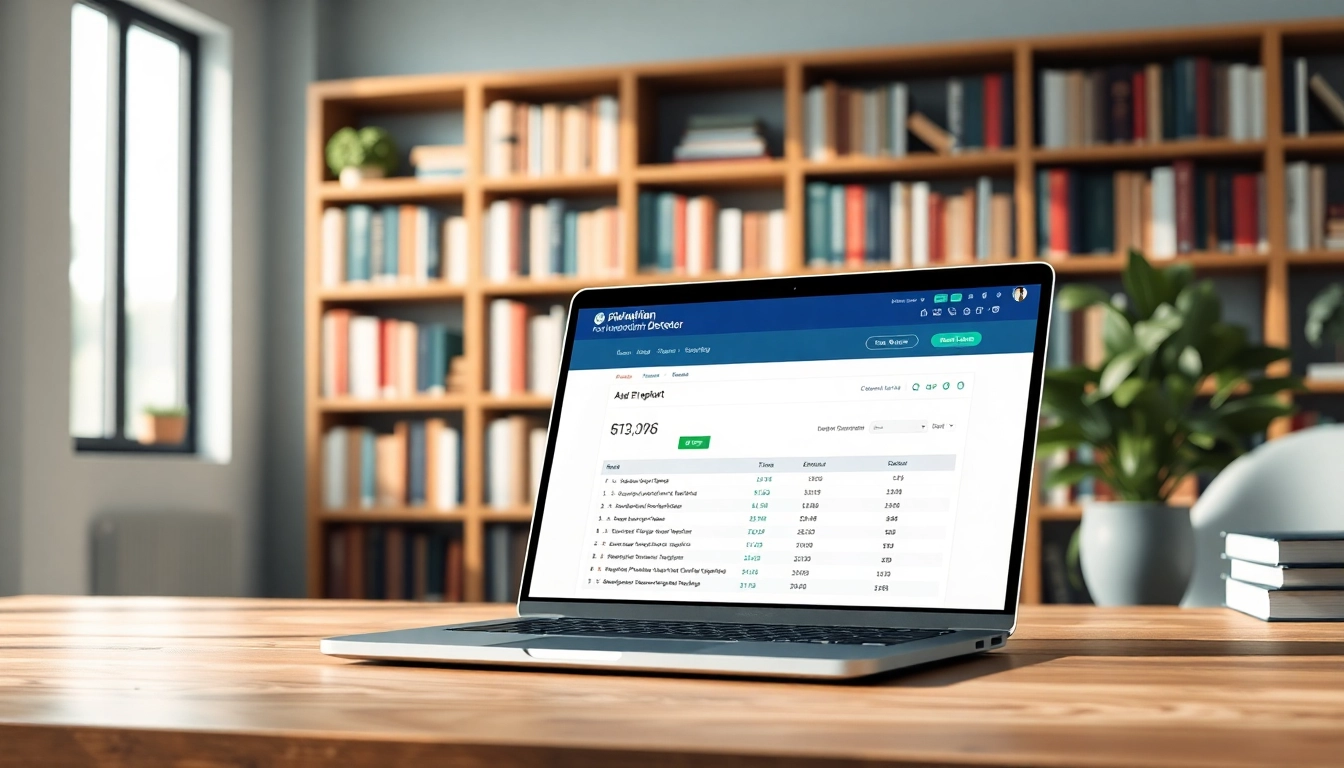Understanding the Level 5 Diploma in Leadership and Management for Residential Childcare
The Level 5 Diploma in Leadership and Management for Residential Childcare is a significant qualification for those aiming to enhance their management skills within childcare settings. This diploma encompasses a robust framework designed to develop the skills necessary to lead and manage effectively in environments that provide care for children and young people. For individuals seeking structured guidance and answers related to this certification, resources like level 5 diploma in leadership and management for residential childcare answers can provide significant assistance.
What is the Level 5 Diploma?
The Level 5 Diploma in Leadership and Management for Residential Childcare is accredited by various awarding bodies, including City & Guilds and NCFE CACHE. It is primarily aimed at individuals in managerial or supervisory roles in a residential childcare setting, equipping them with the necessary tools to foster a nurturing and safe environment for children.
This qualification focuses on managerial aspects of residential childcare, emphasizing leadership, policy implementation, and best practices in safeguarding children. The diploma usually comprises several mandatory and optional units, allowing participants to tailor their learning based on their specific career goals and interests.
Importance of Leadership in Residential Childcare
Effective leadership is critical in residential childcare settings. Leaders are responsible for not only complying with regulations but also for fostering a positive culture where employees feel valued and children feel safe. Strong leadership ensures that staff are well-trained, motivated, and aligned to the overarching goals of the organization, which ultimately impacts the welfare of the children in their care.
Furthermore, effective leaders can drive change, implementing innovative practices that improve child outcomes and adhere to the evolving legal and ethical standards within childcare. By leading with empathy and integrity, childcare managers can significantly influence the quality of care and the overall development of both their staff and the children.
Overview of Course Content and Structure
The curriculum for a Level 5 Diploma typically includes units on leadership and management, principles of safeguarding, and working with others to provide quality care. Each unit is tailored to ensure that learners gain substantial knowledge and practical skills that can be applied in real-world situations. The course structure often includes:
- Mandatory Units: Focused on core skills needed for leadership and management in residential settings.
- Optional Units: Allowing learners to explore specific interests, such as behaviour management, child development, or health and safety.
- Practical Assessments: Activities designed to assess competency in real-life scenarios.
Overall, the combination of theoretical learning and practical application helps ensure that graduates are well-prepared for the demands of leadership in residential childcare.
Key Learning Outcomes and Skills Development
Essential Skills for Childcare Managers
Graduates of the Level 5 Diploma will demonstrate several essential skills critical for management roles in childcare settings:
- Communication: Proficiency in conveying information effectively to staff, children, and external stakeholders.
- Problem-Solving: Ability to address challenges pragmatically and creatively, especially in crisis situations.
- Collaboration: Working with teams to establish a supportive environment that encourages diverse perspectives.
These skills enable managers to foster a positive environment within their organizations, leading to better outcomes for children and efficient operation of childcare services.
Impact on Team Leadership and Development
The Level 5 Diploma equips managers with tools to enhance team dynamics. Effective leaders understand that a motivated team is crucial for delivering high-quality care. By fostering a culture of continuous learning and development, leaders can:
- Improve Staff Retention: By creating a supportive work environment where staff feel valued and have opportunities for professional growth.
- Enhance Team Performance: Encouraging teamwork and collaboration can lead to better performance and morale among staff.
- Build Professional Relationships: Strong leadership fosters trust, respect, and open communication, essential for effective teamwork.
Through the Level 5 Diploma, learners gain insight into motivational theories and practical strategies for implementing these in their teams.
Skills for Safeguarding and Child Protection
Safeguarding is central to residential childcare management. The Level 5 Diploma emphasizes the importance of protecting children from harm, abuse, and neglect. Key competencies developed include:
- Understanding Legislation and Guidelines: Managers learn to navigate complex legal requirements to ensure compliance.
- Risk Assessment: Ability to identify and mitigate risks to child safety effectively.
- Promoting a Protective Culture: Developing strategies that prioritize children’s welfare within the organizational culture.
By deeply understanding these aspects, managers can lead by example, establishing safeguarding as a priority and ensuring all staff are equally committed.
Assessment Procedures and Requirements
Assignments and Practical Tasks
Assessment for the Level 5 Diploma encompasses both theoretical assignments and practical tasks. Assignments typically require learners to demonstrate knowledge through written work, showcasing their understanding of leadership principles, safeguarding practices, and management techniques.
Practical assessments may involve real-world scenarios where learners must apply their skills in managing staff, developing policies, or responding to challenging situations. This hands-on approach allows for concrete demonstrations of competencies acquired during the course.
Examinations and Evaluations
Some awarding bodies may incorporate examination components into their assessment procedures, focusing on theoretical knowledge across various units. Evaluations are designed to ensure that candidates are not only aware of the required standards but also capable of applying their knowledge effectively in practice.
Regular feedback from assessors helps students identify strengths and areas for improvement, making the evaluation process an essential part of their learning experience.
Maintaining Compliance with Regulatory Standards
Compliance with regulations is paramount in residential childcare. During the course, learners are educated on essential regulations, including the Children Act, local safeguarding children boards, and health and safety legislation. They are expected to integrate these standards into their management practices to ensure the welfare of children and the proper functioning of care facilities.
Moreover, understanding these standards prepares candidates for inspections and assessments by regulatory bodies, instilling confidence in their capability to maintain high-quality care and compliance.
Resources and Study Materials
Recommended Textbooks and Guides
Achieving a Level 5 Diploma requires access to effective study resources. Recommended textbooks often include:
- “Leadership in Childcare” – A comprehensive guide to effective leadership strategies.
- “The Child Protection Handbook” – A resource outlining best practices in safeguarding and child protection.
- “Management in Child Care” – A reference for understanding operational aspects of running childcare settings.
These resources complement coursework and provide deeper insights into essential topics.
Online Learning Platforms and Courses
With the advent of digital learning, a variety of online platforms offer courses related to the Level 5 Diploma, enhancing accessibility for learners. Platforms such as FutureLearn and Coursera may provide supplementary courses that reinforce key concepts relevant to childcare management, including leadership skills and child welfare regulations.
Support Networks for Learners
Engagement with support networks can be invaluable for learners pursuing their Level 5 Diploma. Local or online study groups provide opportunities for collaborative learning, sharing experiences, and resources. Furthermore, alumni networks often serve as platforms for ongoing professional development, mentorship, and job opportunities.
Joining organizations such as National Day Nurseries Association (NDNA) or Social Care Institute for Excellence (SCIE) can greatly enhance career prospects by providing resources and networking opportunities.
Career Opportunities with a Level 5 Diploma
Roles Available in Residential Childcare Settings
Graduating with a Level 5 Diploma opens up various career paths within residential childcare. Common roles include:
- Childcare Manager: Overseeing daily operations of residential facilities.
- Senior Support Worker: Providing guidance and support to junior staff while directly caring for children.
- Quality Assurance Officer: Focusing on ensuring standards of care meet organizational and governmental regulations.
Each position requires a sound understanding of childcare principles and exemplary leadership skills tailored through the completion of the diploma.
Advancement Opportunities for Diploma Graduates
With the qualification in hand, graduates may pursue higher positions such as regional managerial roles or specialized consultancy positions within the field. The skills and knowledge acquired from the Level 5 Diploma equip individuals to handle more complex challenges and responsibilities, thereby facilitating career advancement.
Networking within the Childcare Profession
Building a professional network within the childcare sector is crucial for career growth. Engaging with peers, attending industry conferences, and participating in online forums can offer valuable insights and connections. Networking can lead to mentorship opportunities and collaboration on best practices, enhancing both personal and professional development.



